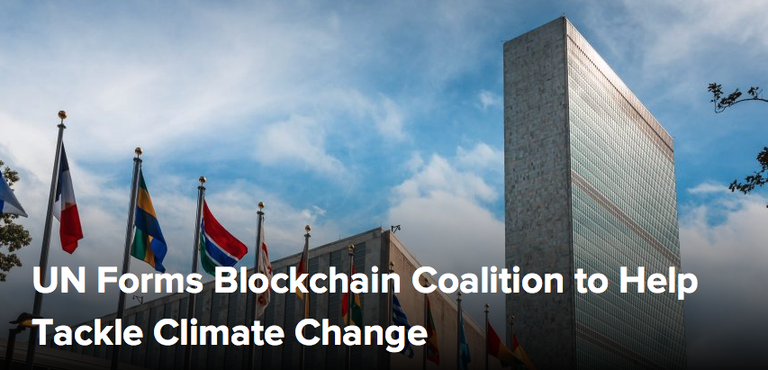
The United Nations is increasing its efforts to promote applications of blockchain technology to further action on climate change.
In a Jan. 22 blog post, the U.N. announced that it has helped launch a new group called the Climate Chain Coalition, which will aim to research the use cases for distributed ledger technology (DLT) in climate change-related initiatives, and potentially adopt them.
As previously reported by CoinDesk, the U.N has been investigating since last May how to create transparent and efficient systems using blockchain that could be applied in situations such as, for example, monitoring carbon emissions, clean energy trading and fund allocation.
According to the blog post, the new coalition came about at a December 2017 meeting of 25 DLT-focused organizations, which agreed to establish the initiative based on the principles of Paris Climate Agreement.
The announcement states:
"[The coalition] will cooperate to support the rapid advancement of DLT solutions to address climate change across mitigation and adaptation through enhanced climate actions, including but not limited to the measurement, reporting and verification (MRV) of the impact of all sorts of intervention, and the mobilization of climate finance from diversified sources."
Now with 32 members signed up, the group is seeking participation from wide range of organizations that have technological expertise.
"To fully and promptly mobilize this potential, broad collaboration among stakeholders is needed to direct resources to priority areas, avoid duplication of effort, and help avoid the pitfalls of working on a new technology with countless unknowns," said Massamba Thioye, who leads U.N. Climate Change's work exploring DLT and blockchain.
While still at an early stage, the coalition nonetheless adds to the non-profit's existing initiatives in utilizing blockchain technology to advance its various causes. The U.N. has previously completed a trial that sent humanitarian aid to Syrian refugees using the ethereum blockchain.
Jesus Bejarano